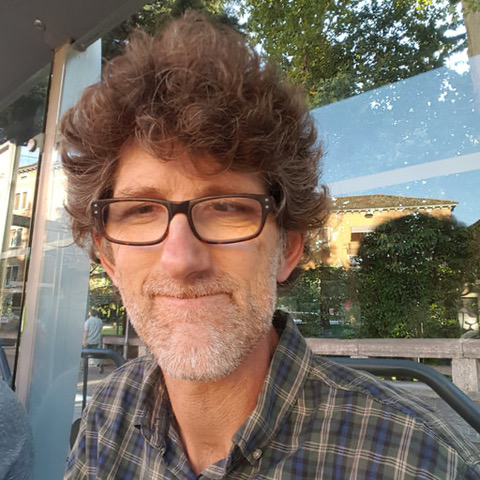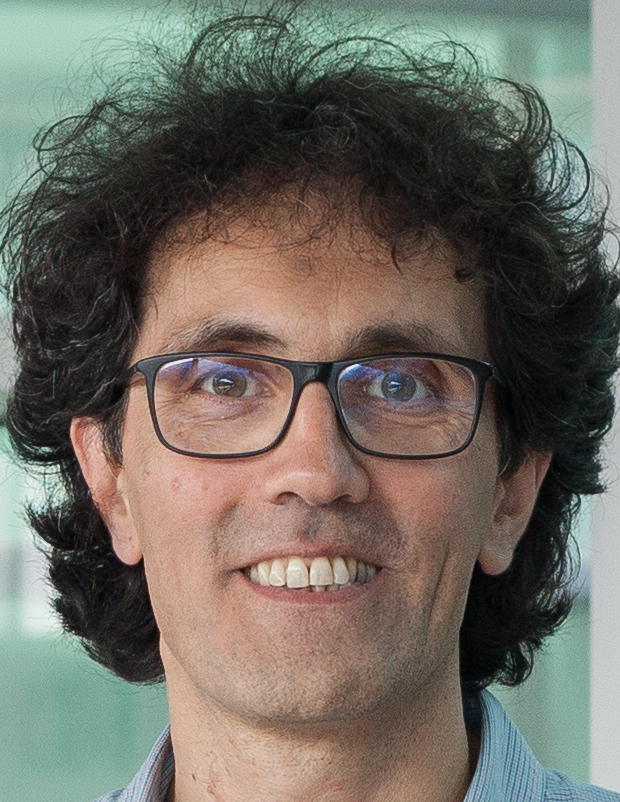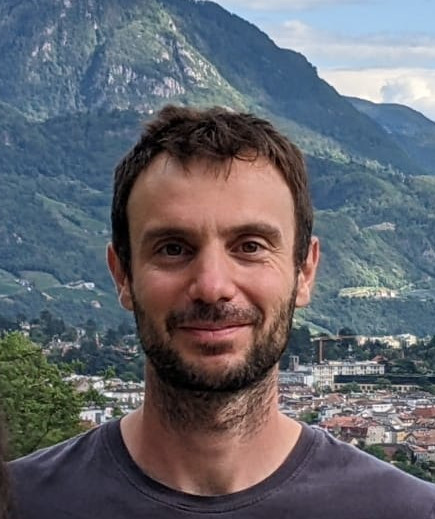Tutorials
The conference will take place from 25th to 28th November 2024. Below you find the schedule of the invited talks for each day. See also the Schedule overview, Main Track Schedule, Workshops Schedule, Invited Talks, and Awards/Schools/Industry session pages.
Neuro-Symbolic Artificial Intelligence
(On Combining Neural Networks with Logical systems)
Wednesday 27th November
10:30 – 12:30
Luciano Serafini
Fondazione Bruno Kessler (FBK), Trento
Chair: Gabriella Cortellessa

Abstract
Neuro-Symbolic Artificial Intelligence (NeSy) is a field of AI that explores how neural network architectures can be integrated with symbolic systems to solve complex tasks that require both numerical computation and symbolic manipulation. The current state-of-the-art in NeSy encompasses a wide range of approaches, depending on the types of neural architectures and symbolic systems integrated, making it almost impossible to provide a complete overview of the field. In this tutorial, we focus specifically on NeSy systems that combine feedforward neural networks with logical systems based on propositional and first-order languages. In these systems, gradient-based learning is integrated with logical reasoning to address tasks such as data classification and link prediction with logical constraints, symbolic rule learning, symbol learning, data clustering with logical constraints, and query answering on high-dimensional data. The tutorial aims to offer a unified perspective on these different systems.
About the speaker
Luciano Serafini is the Head of the Data and Knowledge Management Research Unit at the Fondazione Bruno Kessler (FBK), a position he has held since 2007 doing research in Artificial Intelligence, with a focus on areas such as logic-based knowledge representation, neuro-symbolic integration, and embodied AI. He is also an adjoint professor at the University of Padova, where he teaches knowledge representation and learning.
With a career spanning over 35 years, Luciano has made significant contributions to the field of AI, including the development of Multi-Context (MC) Systems for modular knowledge representation, innovations in quantum computing languages, and the integration of machine learning with logical reasoning. His pioneering work on Logic Tensor Networks (LTNs) has been widely recognized, earning him the title of EurAI Fellow in 2021.
Designing Virtual Knowledge Graphs
Thursday 28th November
13:30 – 15:30
Diego Calvanese and Davide Lanti
KRDB, Free University of Bozen-Bolzano
Chair: Alessandro Artale


Abstract
Complex data processing tasks, including data analytics and machine/deep learning pipelines, in order to be effective, require to access large datasets in a coherent way. Knowledge graphs (KGs) provide a uniform data format that guarantees the required flexibility in processing and moreover is able to take into account domain knowledge. However, actual data is often available only in legacy data sources, and one needs to overcome their inherent heterogeneity. The recently proposed Virtual Knowledge Graph (VKG) approach is well suited for this purpose: the KG is kept virtual, and the relevant content of data sources is exposed by declaratively mapping it to classes and properties of a domain ontology, which users in turn can query. In this talk we introduce the VKG paradigm for data access, present the challenges encountered when designing complex VKG scenarios, and discuss possible solutions, in particular the use of mapping patterns to deal with the complexity of the mapping layer and its relationship to domain ontologies.
About the speakers
Diego Calvanese (http://www.inf.unibz.it/~calvanese/) is a full professor at the Research Centre for Knowledge and Data (KRDB) of the Faculty of Engineering, Free University of Bozen-Bolzano (Italy), where he leads the Intelligent Integration and Access to Data (In2Data) research group. He is also Wallenberg Guest Professor in Artificial Intelligence for Data Management at Umeå University (Sweden). His research interests concern foundational and applied aspects in Artificial Intelligence and Databases, notably formalisms for knowledge representation and reasoning, Virtual Knowledge Graphs for data management and integration, Description Logics, Semantic Web, and modeling and verification of data-aware processes. He is the author of more than 400 refereed publications, including ones in the most prestigious venues in Artificial Intelligence and Databases, with more than 37000 citations and an h-index of 77, according to Google Scholar. He is a Fellow of the European Association for Artificial Intelligence (EurAI), of the Asia-Pacific Artificial Intelligence Association (AAIA), and of the Association for Computing Machinery (ACM). He is the originator and a co-founder of Ontopic, the first spin-off of the Free University of Bozen-Bolzano, founded in 2019, and developing AI-based solutions and technologies for data management and integration.
Davide Lanti is an Assistant Professor at the Research Centre for Knowledge and Data (KRDB) of the Faculty of Engineering, Free University of Bozen-Bolzano (Italy), where he carries out research on Virtual Knowledge Graphs, Semantic Web, Databases, and Description Logics. He received his MSc degree in Computational Logic jointly from the Technische Universität Dresden (Germany) and the Free University of Bozen-Bolzano (Italy). He received his PhD at the Faculty of Computer Science at the Free University of Bozen-Bolzano, Italy.